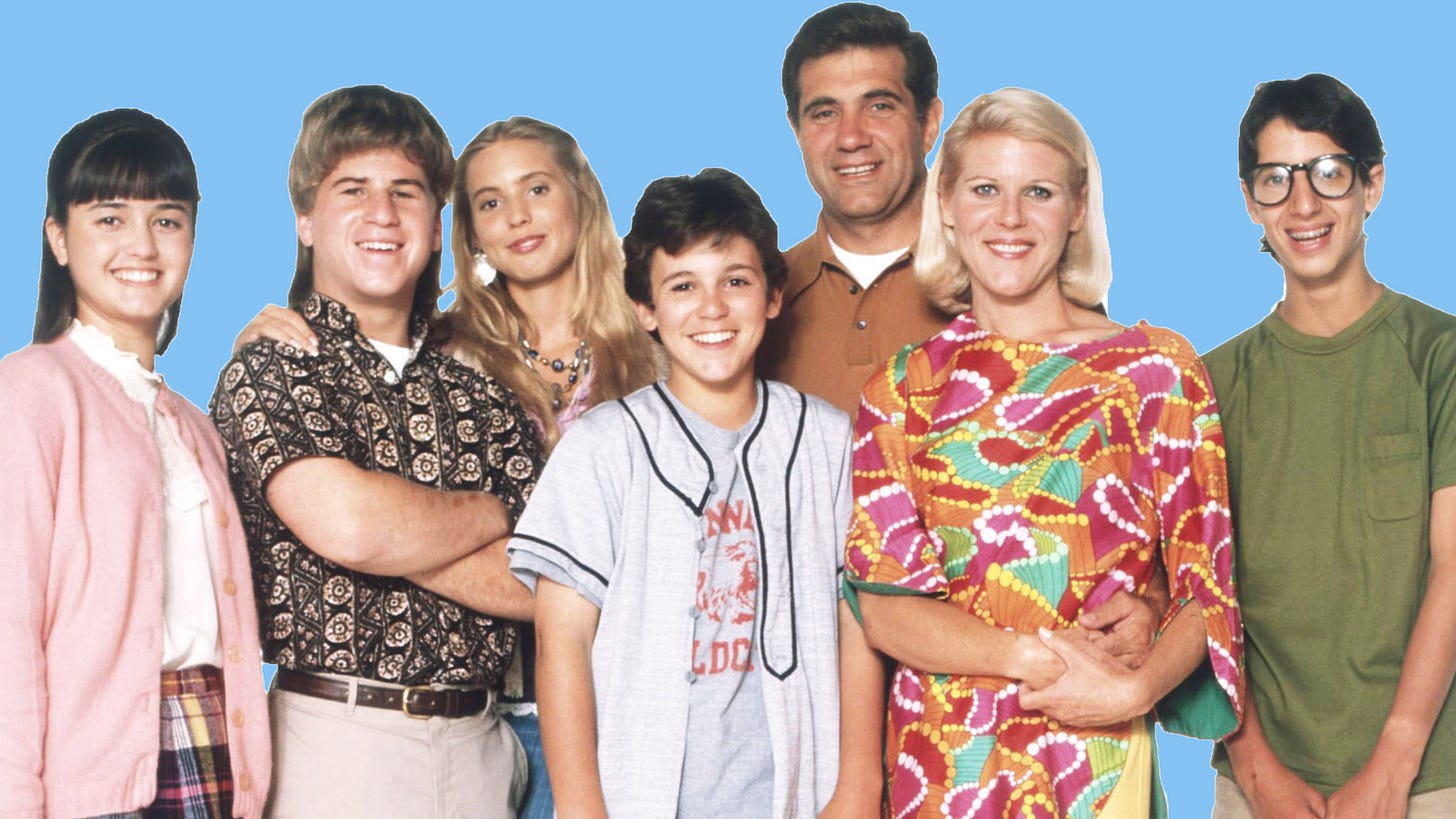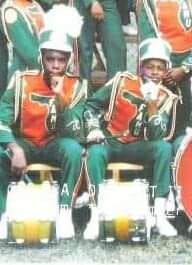I admit that when I first saw ads that ABC was rebooting its hit series "The Wonder Years" with an all Black cast, I was a tad bit skeptical for myriad reasons, not the least of which includes the negative backlash that I just knew would come from some racists who despise seeing Black people acting in show's that they deem "theirs." Between the white racists and even some Black critics whose push for "real” sometimes lends a jaundiced eye at loving two parent homes, I feared that the show, produced by Lee Daniels Entertainment, would struggle out the gates to find its footing.
Well, count me as pleasantly surprised so far...
Now, my original skepticism was driven partially because I am one of those "leave well enough alone" types when it comes to classic movies, television shows, and musical selections from ages past. For example, I'm the type of guy that thought that the great Luther Vandross's remake of the Karen Carpenter hit "Superstar" was far better than the original, while also thinking that Vandross and Mariah Carey's remake of the Lionel Richie/Diana Ross classic "Endless Love" was a dud and as bad as listening to nails scratching across a chalkboard.
So again, I was worried about the remake of "The Wonder Years" and whether it would be a hit or a miss because like most folks in my generation, the original show that debuted in 1988 and starred Fred Savage as the fictional Kevin Arnold, depicted a pre-teen group of friends growing up in the late 1960's and early 70s—an era most of us lower in the birthing order just missed. Through Kevin's eyes, we watched many of the events of that turbulent era, all set amid a backdrop of his pursut of his first love, Winnie (played by Danica Mckellar), and hanging with his best friend Paul, played by Josh Saviano.
While the original Wonder Years cast was predominantly white, as a 15-year-old Black kid when it debuted, I was able to relate to just about every one of the coming of age themes explored in the show. Kevin's crush on Winnie reminded me so very much of my own first crush in middle school and all of the hoarse voice, nervous sweating, tripping over my feet, forgot what I was about to say when I dialed her number (pretending to need reminding about a homework assignment when I really just wanted to hear her voice) type of anxiety that defines that age for just about everyone. Thinking back, I even can laugh at my own version of Kevin's best friend Paul, which for me was the late Chris Henry—an old soul if ever there was one. Sensing my frustration that my crush was having another classmate of ours carry her books across campus, Chris asked me point blank after class one day,"have you ever told her that you "like" like her?" To which I replied, "well, no," which prompted his wise 12-year-old response, "then she only sees you as her friend—and you shouldn't be mad that she is going with someone else." 😆
Well, after watching two episodes of the new version of "The Wonder Years," suffice it to say that the producers and writers have hit a grand slam homerun, as the show has jumped right into the events of April 1968—the month Dr. Martin Luther King was assassinated in Memphis, Tennessee—and explores life at recently integrated Jefferson Davis Junior High School through the eyes of Black seventh graders Dean Williams, played by Elisha Williams, his best friend Cory Long, played by Amari O'neal, and Dean's love interest "since second grade" Keisa Clemmons, played by Milan Ray. After watching the first two episodes, extremely well written and acted by all, my only concern is that 30 minutes is far too short—this show deserves an hour each week to teach and entertain at the same time!
Which brings me back to the critics, particularly the simple minded racist cretins who gripe and moan and levy false cries of "that's racist" anytime a show features a predominantly white cast. From Jon Boyega playing a Black Stormtrooper in 2015's "Star Wars: The Force Awakens," to a Black cartoon version of Peter Parker playing Spiderman, if Black people are on screen, white racists will never be happy—period.
But still, honor compels me to set these ones straight within my writings, thus, my reposting today of a 2014 response that I sent to a woman who called herself "Confused Caucasian" after the racially diverse musical "Annie," one that featured Quvenzhane Wallis in the title role and Academy Award Winner Jamie Foxx as Daddy Warbucks, debuted in theaters.
For your Throwback Thursday reading pleasure:
“Dear Confused Caucasian
Yes, Ms. Confused, Annie is Black because of something called creative license. In this instance, the studio cast Academy Award winner Jamie Foxx and Academy Award nominee Quvenzhane Wallis because they are two of the top performers in their craft and as for Foxx, he remains one of the biggest box office draws around.
But to delve even deeper, Ms. Confused, both Annie and Daddy Warbucks are fictional characters; Hollywood has always taken creative license and cast Caucasians in biopics and stories about real life non-Caucasians. To clear up your bamboozlement Ms. Confused, you do know that the real Jesus Christ, the one born in Judea over two millenia ago, did not look anything like Willem Defoe or Jim Caveziel, both white men, don't you? Similarly, the real Moses did not look anything like white males Charlton Heston or Christian Bale, and Egyptian King Ramses looked nothing like white males Yul Brynner or Joel Edgerton. If you paid any attention in school, you might know that Queen Cleopatra did not look like Liz Taylor or Angelina Jolie, although I doubt that you were taught that Cleopatra's Greek blood did not mitigate her Afro-Semitic blood no more than Barack Obama's Caucasian blood mitigates his African blood.
But yet and still, Ms. Confused, after over a century of filmmaking, such has not stopped Hollywood studio execs from casting Caucasians in these roles because hey, their ultimate goal is to generate profits, not provide a lesson in historical racial accuracy about real life people of color.
But even more crucially, since many of your ignorant ilk who have tweeted similar sentiments love to stand by the "I'm not racist" demurrer, consider this—get over it. There is absolutely nothing wrong with people of color appearing in fictional or non-fictional roles traditionally claimed by whites. In theatres across America in non-white communities, since the end of slavery, Black thespians and dancers have performed as leading figures in plays from European writers ranging from Aristophanes and Homer in antiquity, all the way through William Shakespeare and Christopher Marlowe post-renaissance, to more recent writers like Eugene Oneill and George Bernard Shaw. In fact, the very first time I heard "The sun will come out tomorrow" was when my own quite talented sister was singing it around our house when we were kids in Maryland in the run up to her school play performance of Annie. A few weeks ago, I was proud to watch my own budding ballerina daughter appear in "The Nutcracker" with the World Ballet, where she was the Black attendant to a Black prima performing as THE Sugar Plum fairy.
You see Ms. Confused, where is it written that my child or others cannot aspire to become THE Sugar Plum fairy simply because Peter Illyich Tchaikovsky, composer of The Nutcracker, was white? That is as stupid as saying that white actors cannot play the Three Musketeers or the Count of Monte Cristo because Alexandre Dumas, the famed writer of these two classics, was Black, assuming that you even knew who and what the great Afro-French writer was...
So yes, Annie is Black—but she can be Latino, Asian or any other color, too, because of creative license in this age when a child or actor can be anything or anyone that they are given license to become.
Respectfully straightening out all confusion,
Ol' Hobbs”
Be sure to watch "The Wonder Years" each Wednesday at 8:30 pm on ABC! Have a great Thursday!!!









I enjoyed the original and I absolutely love the new version as well.
👏👏👏💥